Visiting France for the first time can be lovely. The museums and monuments of Paris are incredible, the sunny shores of the Mediterranean are sublime, and the mountains are majestic. But… not knowing French can make it challenging at times. That is why I am sharing some useful French phrases to know when traveling to France.
Language barriers can always be difficult while traveling, especially if you like to get a little off-the-beaten path.
Whether you want to feel a little more confident navigating around Paris or you want to at least be able to communicate a little while venturing to smaller French towns, these are some French everyday phrases that you may want to know.
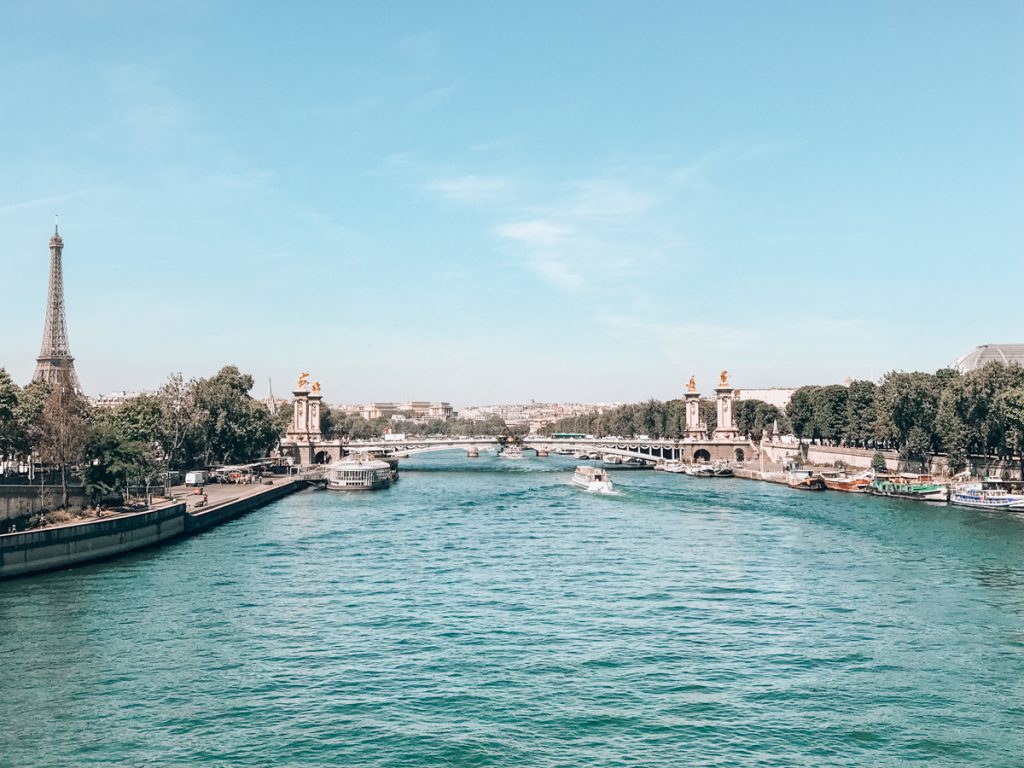
Contents
- 17 Useful French Phrases to Know When Traveling to France
- 1. Bonjour/Bonsoir are definitely French words to know
- 2. Parlez-vous anglais? Is one of the French phrases to know while traveling
- 3.Oui/Ouais & Non
- 4. Au revoir
- 5. Bonne journee/Bonne soiree
- 6. Merci
- 7. De rien
- 8. S’il vous plait is always one of the need-to-know French phrases
- 9. Ou sont les toilettes? Is one of the most useful French phrases to know
- 10. Pardon
- 11. Excuse-moi
- 12. Je suis desole(e)
- 13. Je voudrais
- 14. Je vais prendre
- 15. Je ne comprends pas
- 16. L’addition s’il vous plait
- 17. Je ne parle pas francais
17 Useful French Phrases to Know When Traveling to France
Whether you’re visiting Paris for a week or are planning a fun South of France road trip, these are the 17 essential French phrases you should learn.
PS- I’m going to attempt to somewhat provide how to say this for American-English speakers as French and American-English pronunciations aren’t the same. I recommend Google Translate for a better idea of how to pronounce these words.
1. Bonjour/Bonsoir are definitely French words to know
I cannot emphasize enough how important this one is. It truly can make a difference between receiving good service at a shop or getting completely ignored.
Bonjour (to use before 5 pm) and bonsoir (after 5 pm) essentially mean “Hello.” It is considered rude to not say this to employees at a market, store, cafe, etc. when you walk in.
I mean, when you think about it, it makes sense. Everyone wants to be acknowledged before being approached with questions or drink orders. So if you don’t say “hello,” you may experience the stereotypical “French rudeness.”
I’m not saying people can’t be mean (people can be rude everywhere), but often times the reason many Americans find that French people seem rude is simply that Americans didn’t say “bonjour” and were seen as rude first.
And while this seems like common sense to French people and perhaps other cultures, in the US, it just isn’t as expected to say “hello” right away.
So just be sure to always say “bonjour” or “bonsoir.”
To say “bonjour” it sounds like “bon gour” (kind of like how you would pronounce the second “g” in garage). Bonsoir sounds like “bon swar.”
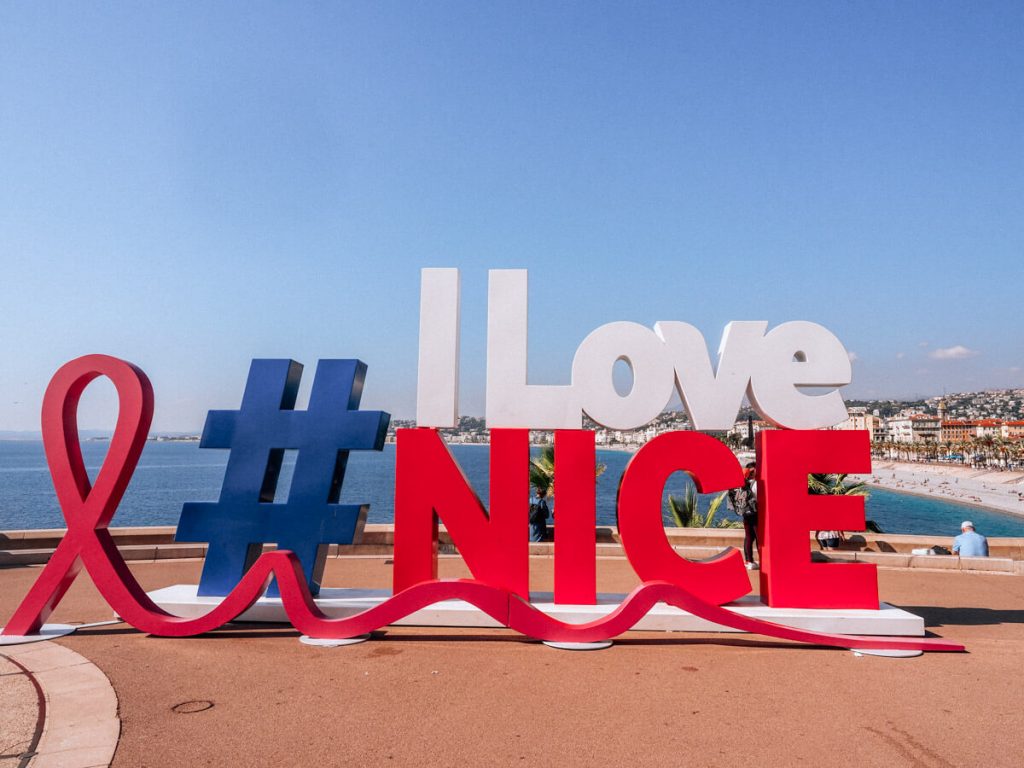
2. Parlez-vous anglais? Is one of the French phrases to know while traveling
This is a basic French phrase to know that means “do you speak English?”
I don’t think people expect you to be completely fluent in French when you visit France, especially if you’re in the touristy parts of Paris for a short period of time. However, people always appreciate an effort.
It is definitely seen as rude or ignorant to automatically start speaking in English when talking with a French person in France. And if you don’t know much French at all (or any really), just be sure to know “bonjour/bonsoir” and this phrase.
It is pronounced, “parlay-vu ang-lay?”
If you hear them reply with a “oui” or “yes” then you can ask what you need to ask in English.
3.Oui/Ouais & Non
You may recognize these French words to know. Oui means “yes” and Non means “no.” Ouais means “yeah,” so it is a little less formal.
Remember that the “ou” parts of these words are actually pronounced with a “wuh” sound. So oui is pronounced “wee,” and ouais is pronounced “way.”
No is basically pronounced the same as it is in English.
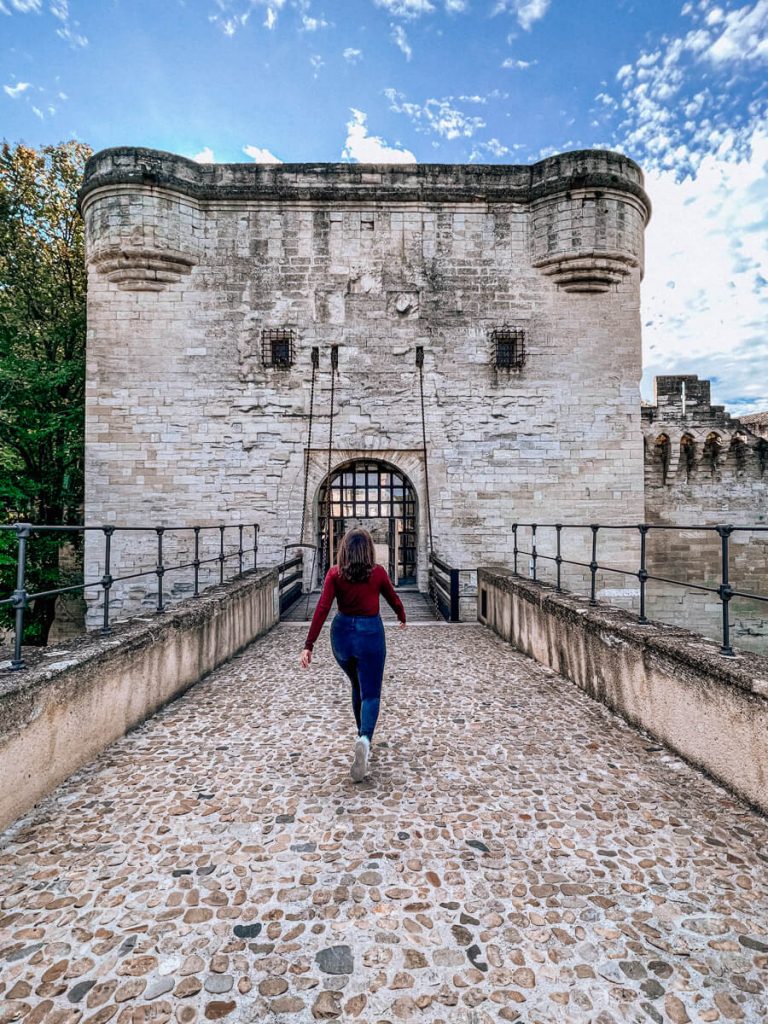
4. Au revoir
Au revoir is how to say “goodbye” in French. So, if you’re saying goodbye while leaving a shop, this is what you’d say.
It is pronounced kind of like “oh rev wah”.
If this is a less formal setting, and you’re with friends, you can just say “salut.” This just means “bye.” It is pronounced more like “sal-oo.”
5. Bonne journee/Bonne soiree
These two basic French phrases to know mean “have a good day” and “have a good evening,” respectively. I use the same rules as bonjour/bonsoir as to when to say them, and it is a polite thing to say as you leave a shop.
It is pronounced “bun gour-nay” (same “ge” sound as in “bonjour”) for “bonne journee” and “bun swar-eh” for “bonne soiree.”

6. Merci
Pronounced like “mare-see,” this is one of the must-know French words because you’ll likely be saying this a lot.
It means “thank you,” and whether your server is bringing you your food or someone is handing you something, it is a nice thing to say.
7. De rien
This means, “you’re welcome.” So if you’re holding the door open for someone in France and they say, “merci,” you can replay with this.
It is pronounced like “du re-un” or kind of like how you would say “durian” (yes, like the fruit) but quickly.
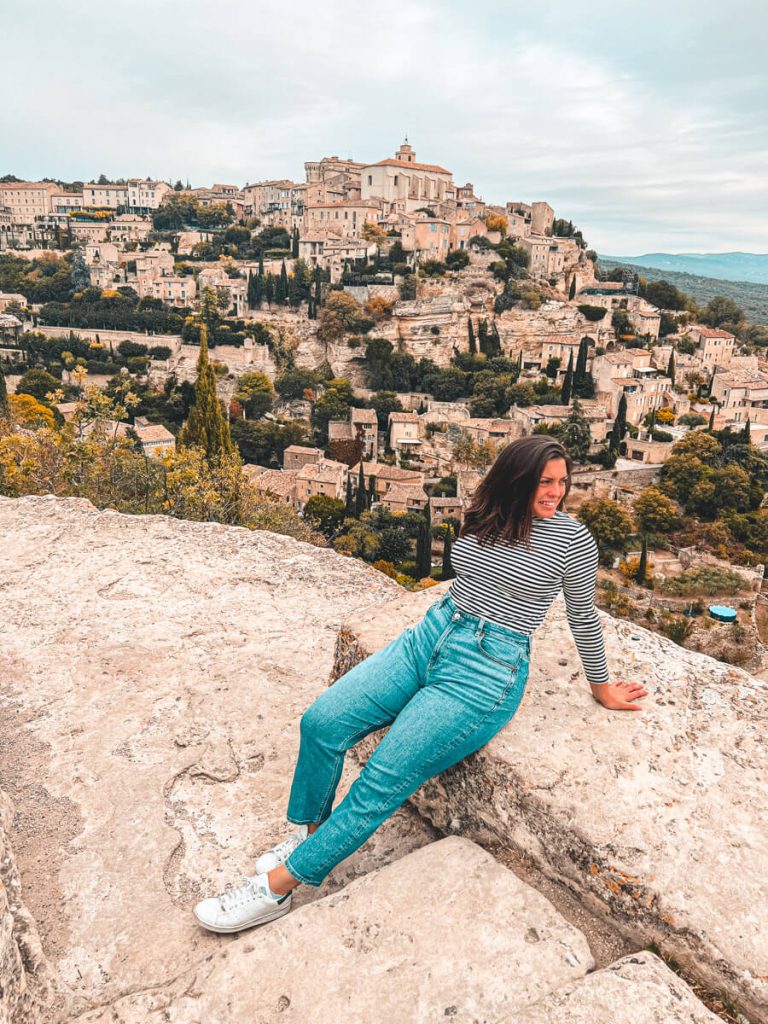
8. S’il vous plait is always one of the need-to-know French phrases
This means “please” and, just as you learned as a child, it is always important to say your “pleases” and “thank yous.”
So, if you want to order something, just end with a “s’il vous plait,” to be polite.
It is pronounced like “sil vu play.”
9. Ou sont les toilettes? Is one of the most useful French phrases to know
This is an incredibly useful French phrase to know, especially as it means “where are the toilets?”
It is pronounced mostly like it is spelled, except the “ou” is pronounced kind of like “ooh.” But if you need to find the restroom in a restaurant, this is definitely something to know how to ask.
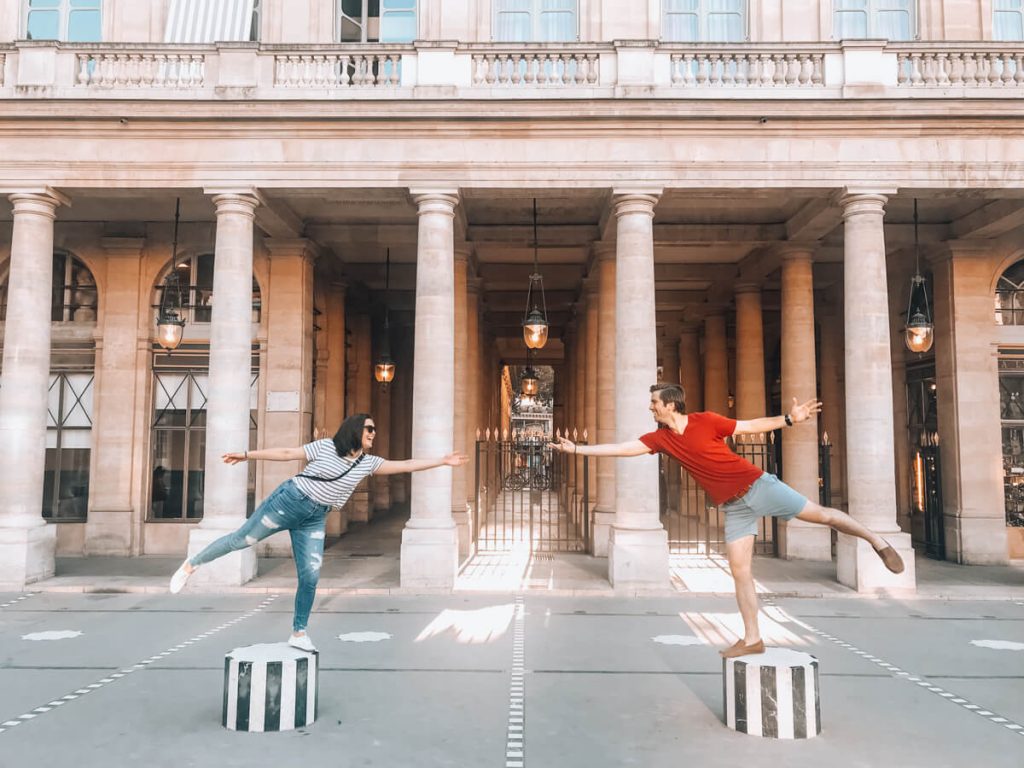
10. Pardon
Pronounced like “par-donn,” this phrase simply means “sorry” or “excuse me.” You’ll likely hear this one a lot in crowded places like the metro when someone accidentally bumps into you.
It is a polite thing to say after you bump into someone or if you want to get around them.
11. Excuse-moi
This key French phrase to know means, as you can already imagine, “excuse me.” Pronounced mostly how it looks, it is mostly used as a way to begin a request, like asking for directions, or for getting someone’s attention in a polite way.
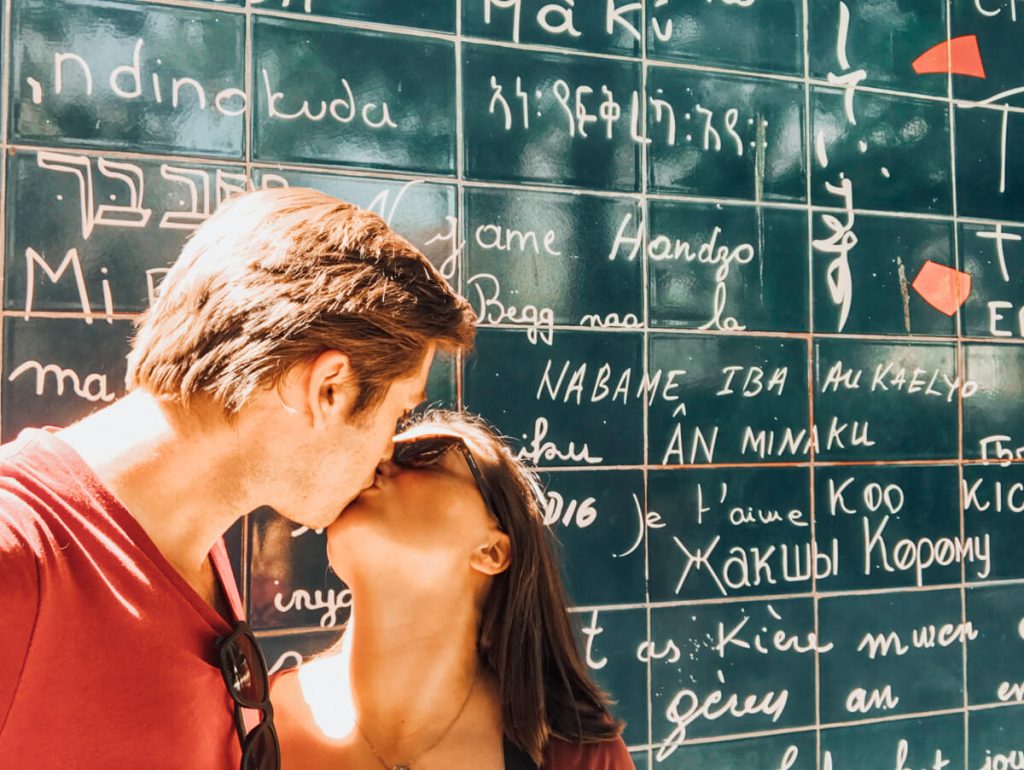
12. Je suis desole(e)
This means “I am sorry.” It is a good French phrase to know if you knock something over, walk into someone, make a mistake, etc.
As a clumsy person myself, I’ve definitely needed to know this phrase.
This is pronounced like “ge swee dezo-lay,” (same “ge” sound as in “bonjour”) and the extra “e” is the feminine version of the word.
13. Je voudrais
For beginners who want to order something at a cafe or restaurant, this is a great thing to know. This means “I would like…” and is pronounced like “ge voo-dray” (same “ge” sound as “bonjour”).
So if you wanted to order a croissant at a cafe, you’d simply say “Bonjour, je voudrais un croissant, s’il vous plait.”
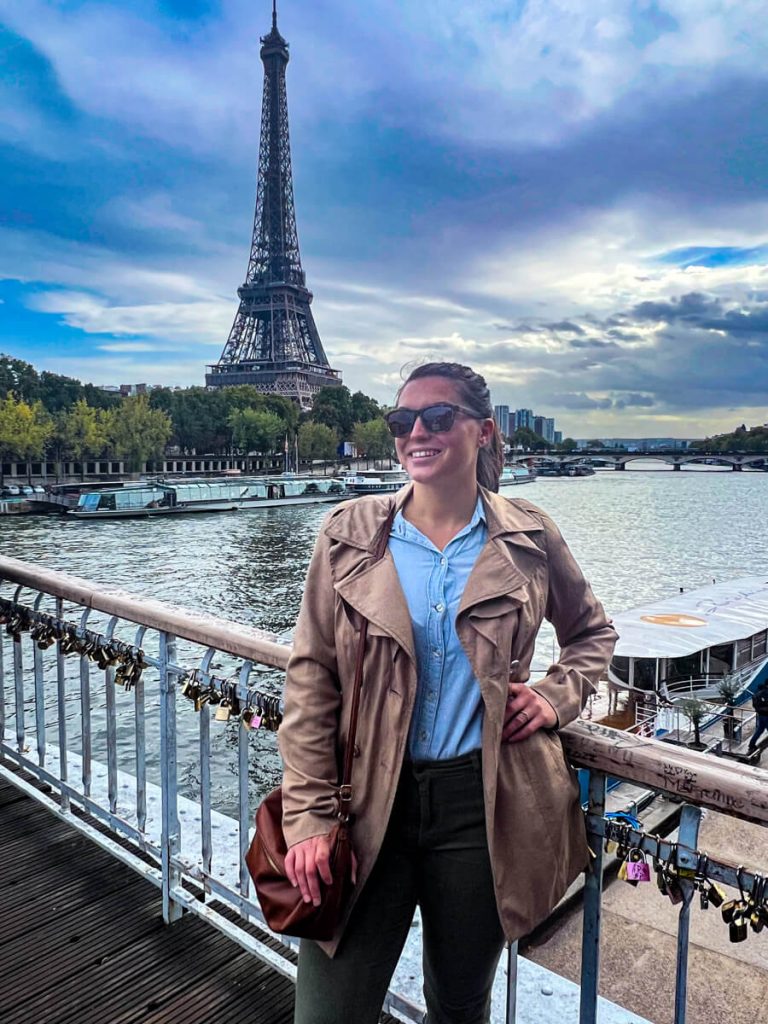
14. Je vais prendre
This is very similar to “je voudrais” only it is more commonly used while ordering food or drinks at a restaurant or cafe. It means “I will take.”
It is pronounced like “ge vay prend-ruh” (same “ge” sound as “bonjour” and the “ruh” part is fast).
So you can also order a croissant at a cafe by saying, “Bonjour, je vais prendre un croissant, s’il vous plait.”
15. Je ne comprends pas
If someone is speaking too fast, or you simply just don’t understand what someone is saying, this is a must-know French phrase.
It means “I don’t understand.” You pronounce it like “ge nuh com-prond pas” (same “ge” sound as “bonjour”).
You can also drop the “ne” and it means the same, so that would be “Je comprends pas.”
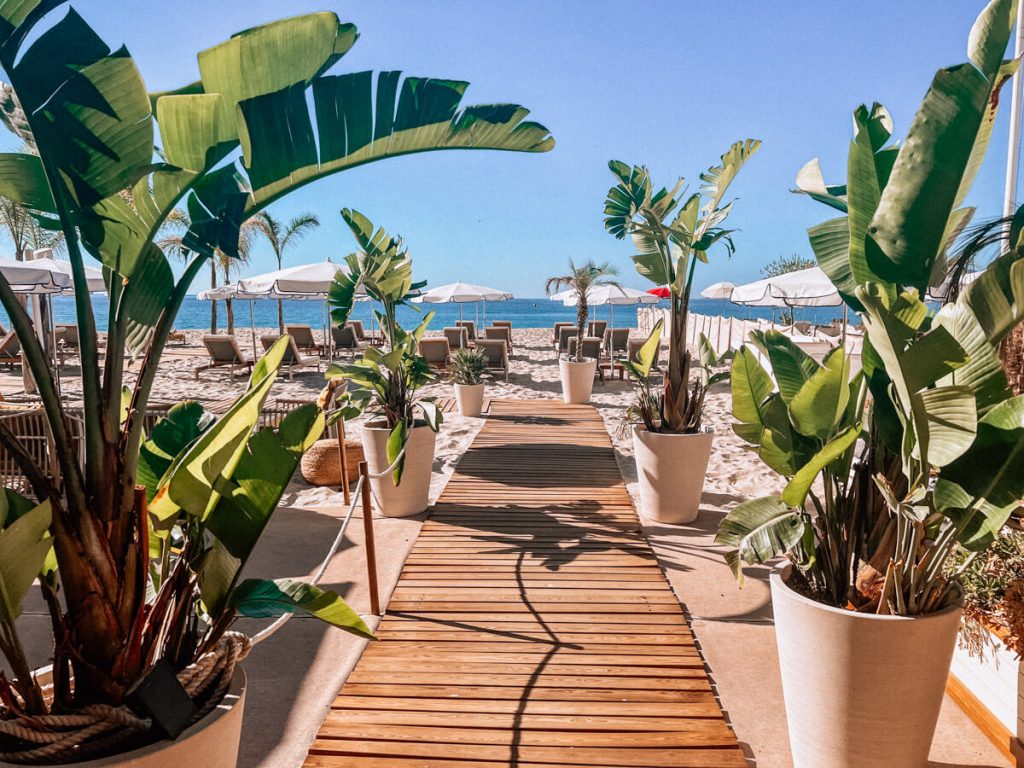
16. L’addition s’il vous plait
Unlike in the US, servers in France do not come up to the table constantly and ask you how everything is tasting, if you need a refill, etc. In a way, it is really nice to be left alone.
But, if you need to pay the bill and leave, you’ll have to flag them down. Do not and I mean DO NOT snap your fingers and yell “garcon.” That literally means “boy” and is super disrespectful. You won’t get much help when you say that.
Instead, you can try to make eye contact/ give a small wave to get their attention and they’ll come over. Then, you’ll ask “L’addition s’il vous plait.” This means “The bill, please.”
L’addition is pronounced how it looks for the most part, and s’il vous plait is pronounced “sil vu play.”
17. Je ne parle pas francais
This means “I don’t speak French.” So if someone starts to speak with you in French and you don’t speak French, then you can reply with this.
It is pronounced as it reads for the most part except for the “je” (it is the same “ge” sound as “bonjour”). You can also drop the “ne” and say “Je parle pas francais,” and it means the same thing.
These are definitely the must-know French phrases before you travel to France.
Want to Learn More French? Here are some great resources!
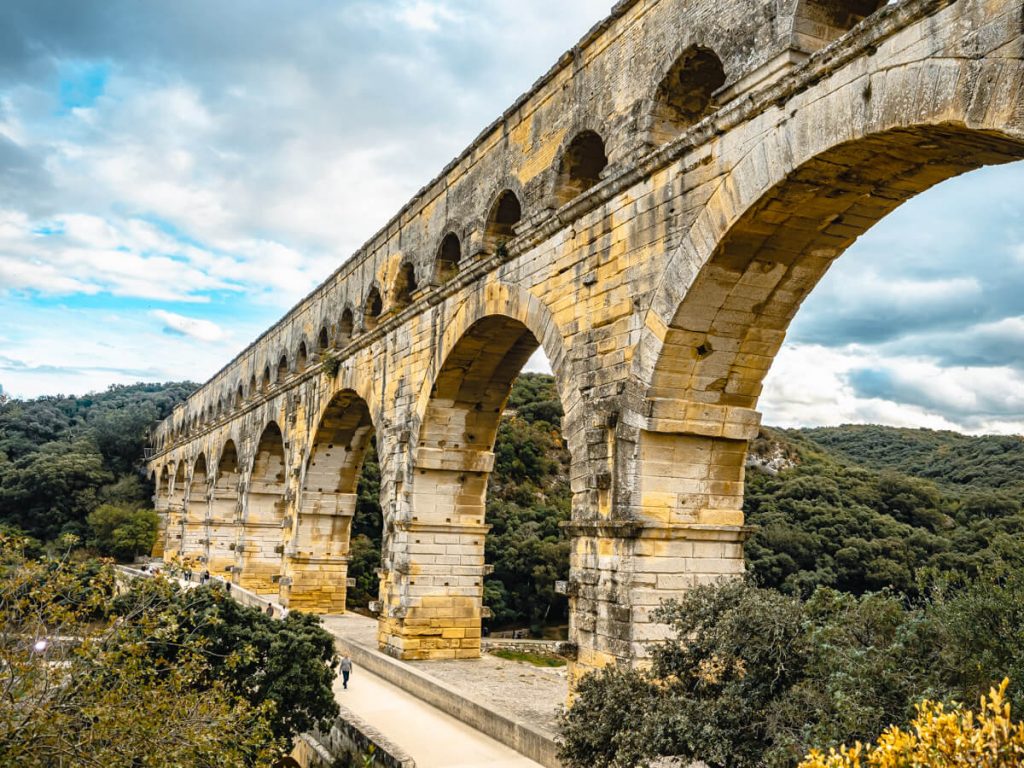
Okay, say you’ve mastered these useful French phrases to know and you really want to up your game. Or, perhaps you’re planning to stay in France for an extended period and need to know more than the basics.
Luckily, there are plenty of ways to learn French. Aside from taking an actual course in a classroom, there are apps like Duolingo, which I’ve used to brush up on my French and get better, and Babbel.
Aside from apps, there are plenty of books, like Easy French Step-by-Step, or even Youtube channels, like Comme Une Francaise.
And you can also pay for online classes like on the Comme Une Francaise website. What I like about classes from here is that not only can you learn basics, but you can learn things like fast French and more spoken French to sound more fluent.
French Television For Learning More French Phrases

When you learn a decent amount of French, then I recommend checking out some great French Netflix shows like Lupin, The Ultimatum: France, Call My Agent, The Hookup Plan, and The Circle France.
These are great ways to hear how French actually sounds and start imitating the accent to improve your French.
Plus, French shows give insight into the culture like in reality shows such as The Ultimatum: France or The Circle France.
Whether you’re visiting Paris for a few days or you want to learn more about how to speak French, these are some great French phrases to know and other resources.
Want more France travel tips? Check out these posts:
- Best Weekend Trips From Paris
- 3 Days in Cannes
- Epernay or Reims: Which Should You Visit?
- Ultimate French Riviera Itinerary in 5 Days
- Nice in One Day
- Luberon France Villages Guide
- Best Alsace Christmas Markets
- One Day in Avignon
- Perfect 5 Days in Provence Road Trip
- Best Things to do in Cassis
- Best French Gifts
- Top Things to do in Beaune
- Best Day Trips From Annecy
- Hidden Gems of Paris
- How to Spend 10 Days in France
- 2 Days in Paris
- 1 Day in Cannes
- 1 Day in Colmar
- Best Smaller Museums in Paris
- Strasbourg Christmas Market Guide
- Best French Pharmacy Beauty Products
- Obernai Christmas Market Guide
- Riquewihr Christmas Market Guide
- Ultimate 7-Day Normandy Road Trip
- How to Visit Mont Saint Michel
- Weekend in Champagne Itinerary
- Things to Do in Paris in the Summer
- 1 Day in Paris
- How to Spend 4 Days in Paris
- Ultimate 5 Days in Paris
- Best French Cheeses
- Things to do in Grenoble
- Paris Day Trip to Versailles Guide
- Best Time to Visit Paris
- Romantic Things to do in Paris
- Where to Stay in Paris
- Best Things to do in Lyon
- France Bucket List
- Paris Bucket List
- Most Beautiful Cities in France
- Top Things to do in Dijon
- Annecy in Winter Guide
- 1 Day in Annecy
- Paris in January Guide
- Ultimate Paris 2024 Olympics Travel Guide
- Paris in the Fall Guide
- Top 15 France Road Trips
- Colmar Christmas Market Guide
- Ribeauville Christmas Market Guide
- Kaysersberg Christmas Market Guide
- Best Things to Do in Deauville
- Ultimate Normandy Cider Route Guide & Itinerary
- 3-Day Loire Valley Itinerary
- Best Things to Do in Gordes
- Top Things to Do in Grasse
- Perfect Weekend in St Tropez
Pin it here!



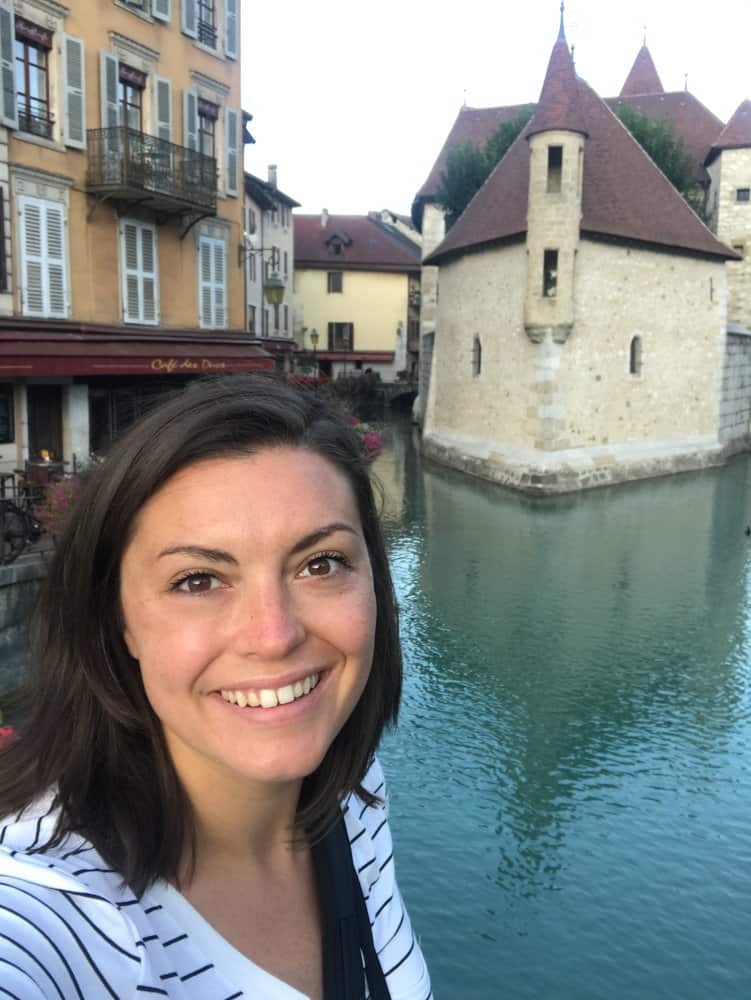
Kat is the France travel expert behind France Voyager. After studying abroad in Grenoble and traveling throughout France, she fell head over heels for the country. She has since visited many times since 2012 (including visits to 10 of the 13 regions in Metropolitan France) and is sharing all the tips for visiting France in this blog, which she has run for 4 years. Kat shares places she has traveled to and provides tips based on her own personal experiences of traveling and living in France. Aside from France Voyager, Kat also has a couple’s travel blog called World Wide Honeymoon and a podcast that she co-hosts with her husband, Chris, called the World Wide Honeymoon Travel Podcast.

Love your info- just a little update: It’s Je ne parle pas français. No LE for the verb parler with a language!
AND… orally, the ‘ne’ is dropped. So, it sounds more like- Shhhh pahl pah frawn say
Hi Kelly! Thanks for catching that- sometimes I make mistakes as I’m still learning French. And I kept the “ne” just because this is more for beginners.
Great list of phrases! As a beginner learner, it’s always helpful to have a go-to resource for practical phrases to use while traveling. I’ll definitely be referencing this list when I plan my trip to France later this year. Merci!
Thank you!
Thank you for sharing these essential phrases! I’m planning a trip to France soon and this post has been super helpful in preparing me for the trip. Merci!
Thanks! Have fun!
This post is super helpful! I never realized how much a few phrases could enhance my experience in France. Can’t wait to practice these before my trip! Thank you for sharing!
Thanks for reading and I’m glad you found it useful!
Great post! These phrases are super helpful for anyone planning a trip to France. I can’t wait to try them out and immerse myself in the culture. Merci beaucoup!
Thank you! Have fun in France!